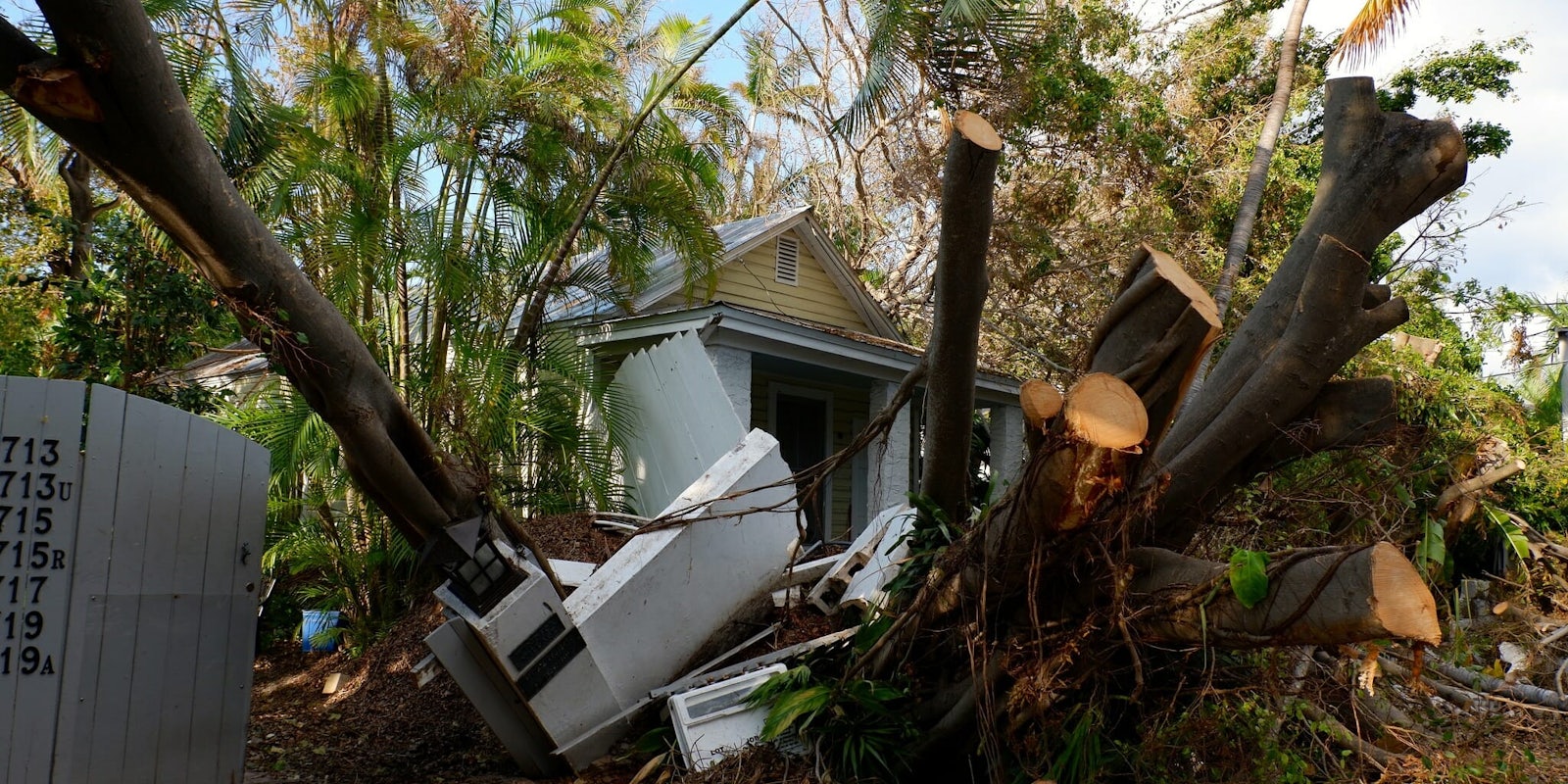The Federal Communications Commission’s (FCC) plan to cut phone and broadband Lifeline program as a potential “death sentence” for vulnerable citizens in Puerto Rico, according to a prominent non-profit organization.
Around 500,000 Puerto Ricans in isolated and poor communities currently rely on the program, which offers a subsidized phone and basic internet service, as they recover from Hurricane Irma.
“Lifeline is a tool that is utilized to alert and communicate with underserved communities in times of disaster,” Luis Belén, CEO of National Health IT Collaborative for the Underserved, a non-profit that has been actively involved with government efforts working with the healthcare community in Puerto Rico, told Newsweek. “These are rural communities two hours away from any real healthcare. We’re not talking about giving these people unlimited texting, this isn’t a luxury. This is something people use to take care of their basic needs.”
A total of 12 million struggling low-income and elderly Americans across the country are beneficiaries of Lifeline. FCC Chairman Ajit Pai’s policy change seeks to prevent companies that do not provide their own infrastructure from offering the subsidization to its customers. If the proposal to cut the service passes a FCC vote, around 8 million Americans will be dropped from the program.
Lifeline was originally a bipartisan initiative introduced under President Ronald Reagan and has had the support of multiple Republican and Democratic administrations since.
Pai, however, has argued that the money saved from the cuts will help rural internet providers build their own infrastructure and networks. Critics have described the move as counter to Pai’s mission to improve access to the internet.
Indeed, this is the argument put forth by several prominent Democratic and Independent senators, who wrote a letter to the FCC demanding it considers the potential problems that the proposals might cause.
“It is unclear why the FCC would spend billions of dollars to expand access to broadband while at the same time make Lifeline less accessible to those who need it most,” it reads.
The senators who signed the letter include: Sen. Kamala Harris (D-Calif.), Sen. Jeff Merkley (D-Ore.), Sen. Bernie Sanders (I-Vt.), Sen. Edward Markey (D-Mass.), Sen. Ron Wyden (D-Ore.), Sen. Richard Blumenthal (D-Conn.), Sen. Elizabeth Warren (D-Mass.), Sen. Dick Durbin (D-Ill.), and Sen. Cory Booker (D-N.J.).
“The Lifeline Program is essential for millions of Americans who rely on subsidized internet access to find jobs, schedule doctor’s appointments, complete their school assignments, interface with the government, and remain connected in a digital economy,” they wrote.
“The program helps Americans—including disproportionate numbers of families with children, veterans, and people of color—survive.”


